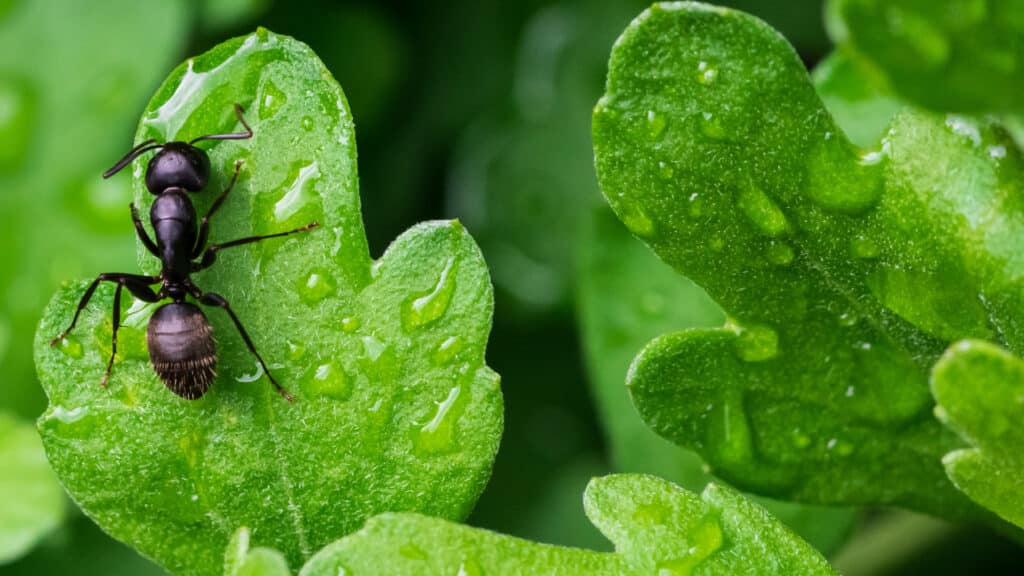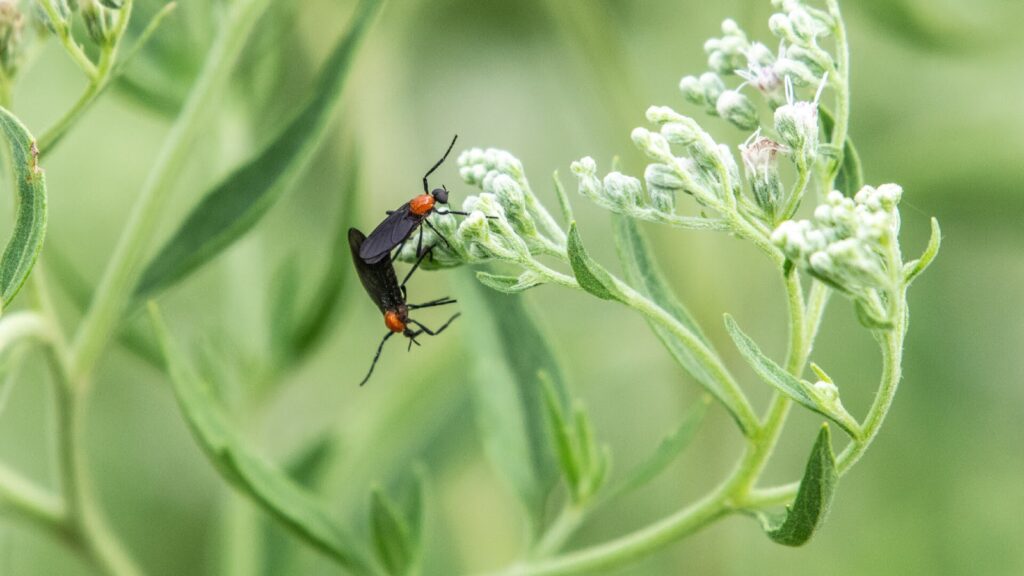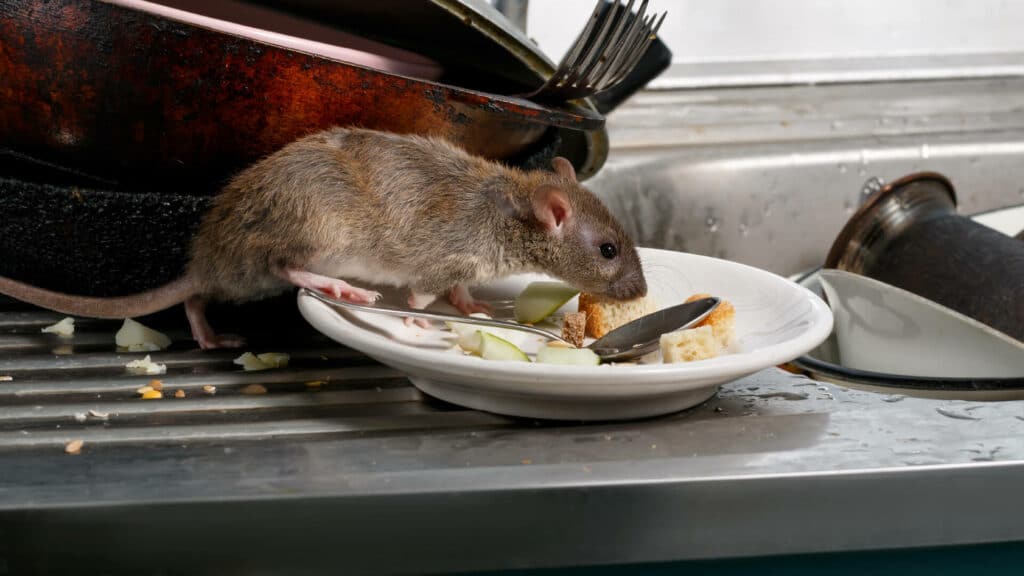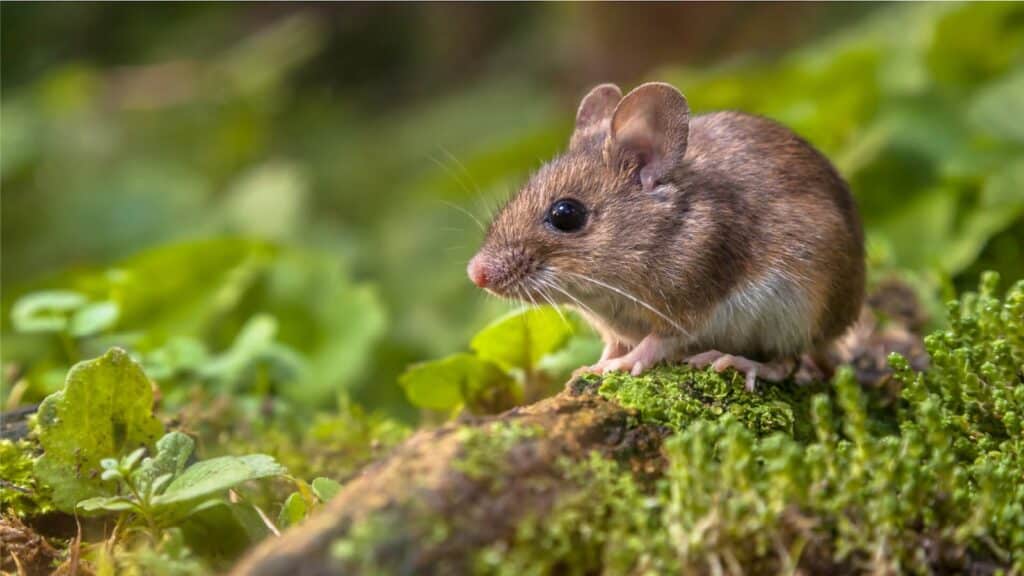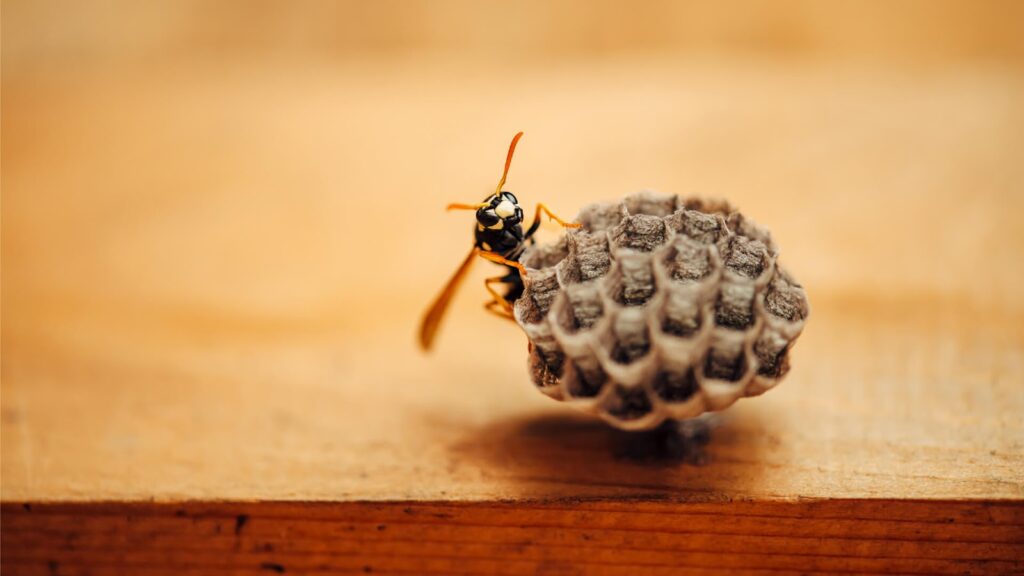Have you ever wondered where bugs go in the winter? Do you notice an increase of insects in your house during the cold months? These instances are explained by overwintering – the process of staying alive throughout the winter season. It can apply to any organism, but we will be focusing on how it applies to insects.
What Is Insect Overwintering?
Insects can overwinter in any stage of their growth, even as eggs. There are two main ways overwintering may be accomplished – hibernation or migration. Hibernation is a state of inactivity, while migration involves movement to reach a warmer climate. Most insects focus on hibernation, although select few migrate.
The particular overwintering strategy used by an insect depends on their species and stage of life.
Overwintering as Adults
Most adult insects will migrate under tree bark, rocks, leaf litter, or into buildings to protect themselves from the cold. Once they’ve reached a safe spot, they hibernate. Nearly all activity stops until warmth returns. Bugs that climb into houses for the winter often include spiders, fleas, and other bugs that we’ve shared below.
Overwintering as Larvae
Many insects successfully make it through the winter as immature larvae. They often seek protection of heavy covers, such as leaf litter or burying themselves deep into the soil. Some insects are even able to replace the water in their body with a type of antifreeze in order to withstand freezing temperatures.
Overwintering as Pupae or Nymphs
Pupae and nymphs feed actively and grow throughout the winter season, then emerge as adults by spring. Certain species of nymphs will live in bodies of water during winter (even beneath ice).
Overwintering as Eggs
While insects lay less eggs during the winter season, it still occurs. Some eggs manage to survive because they are laid in the soil or other safe areas where they don’t freeze. Many species lay their eggs before largely dying off in the winter, then are replaced by a new generation in the spring.
What About Food?
Due to the lack of food in the winter, many enter hibernation. Some gain nutrition needs from microhabitats, including under the soil, inside the wood of logs and trees, and even in plants. Their ideal shelter provides these nutritional needs.
How to Prevent Overwintering Insects In Your Home
Most bugs that make their way inside during the winter aren’t dangerous. Often times, they are beneficial garden insects that will help keep away bad bugs once warmer months return. However, you might not enjoy seeing them crawl around your home.
Preventing Insects
The best way to prevent overwintering insects in your home is by sealing all holes, cracks, and entry points in the foundation of your home. Make sure weather screens, doors, and windows are sealed to keep the insects out. Additionally, repair any cracks around windows, doors, chimneys, and pipes if necessary.
Another prevention method is to use insecticide around the perimeter of your house before the cold weather months arrive (ideally, before autumn).
Controlling Insects
Once the insects are inside, they’re harder to get rid of. You can vacuum them up, or physically remove them and dispose of them outside. There are also insect traps and sprays. If this is a recurring problem, be sure to take prevention measures before the insects start moving inside. Consider hiring a professional to abolish the problem for good.
Common Overwintering Insects
Stink Bugs
Some of the most common overwintering insects include stink bugs. They are typically grayish-brown in color and spend most of their time outdoors. In the winter, you might find them in the warm places of your home like the kitchen and the attic.
Asian Beetles
Often confused with ladybugs, Asian beetles have a small black-spotted red or orange shell. Their dark heads have white spots that look like eyes. Although their favorite overwintering areas are underneath rocks and leaves, they will occasionally get into household rooms that have a lot of sunshine.
Boxelder Bugs
These bugs have black, fiery red, or orange stripes on their backs and are often considered the most common overwintering insects in homes. They occasionally migrate to warm, sunny rooms of the house as well as the kitchen or attic.
Cluster Flies
Cluster flies are dark gray in color. Like many other insects, they are attracted to light. You can typically find them in your rooms located upstairs or in the attic as they continue to head upward until they can’t anymore. You can get rid of these insects by using an indoor bug spray or residual sprays for preventive maintenance.
In general, overwintering insects is a problem for many households. While most of these insects aren’t dangerous, it’s not pleasant to see critters crawling around or spider webs showing up while trying to keep a clean home. We recommend taking prevention measures before winter arrives if you’ve experienced winter bugs on a recurring basis. Give our team a call! Your local Aptive Environmental branch will ensure your house remains protected from bugs all winter.
